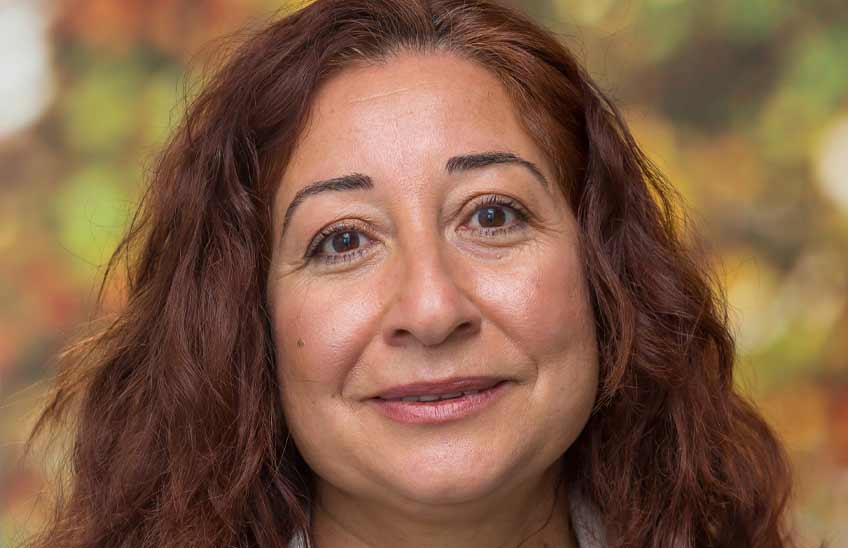"It is not yet in the diary of the EU to determine the financial aid economic to rebuild Turkey after the seismic catastrophe."
Melike Akkaraca, a native of Turkey and a Marie Curie researcher at the University, says that "the EU does not have the capacity to pressure Turkey to take preventive measures for future emergencies".

FotoManuel Castells<br>/Melike Akkaraca
09 | 02 | 2023
"It is not yet in the diary of the European Union (EU) to determine the economic financial aid to rebuild the cities affected by the earthquake in Turkey. Another question is whether it or individual countries will do it". This was stated by Melike Akkaraca, a native of Turkey and a Marie Curie researcher at the Marie Curie Research Centre (ICS) of the Institute for Culture and Society (ICS) at the University of Navarra.
As the expert explained, after another major earthquake occurred in the country in 1999, which left 17,000 dead, "funds were granted to reconstruct some buildings and districts", subject to the external control of the nations that offered them. "This condition was a guarantee that the new buildings complied with seismic-resistant regulations," she added.
As to whether the EU can put pressure on Turkey to take measures in the future to better respond to these emergencies, in the context of its candidacy negotiations, he pointed out that "this subject mechanism no longer works since both sides know that accession will not be possible in the short or medium term deadline. The EU has no influence because there is no longer a real candidacy process".
According to agreement with the ICS researcher, the ingredients of the catastrophe have not only had to do with the magnitude of the earthquake: the poor weather conditions also played a role, as the snow was an obstacle for the reception of the financial aid in the most affected areas; the high urban density of the cities, as most of the buildings are multi-storey towers; the lack of compliance with the rules and regulations seismic-resistant in the construction of buildings, even in hospitals; and, especially, the absence of a crisis plan by the authorities, despite the fact that scientists had been warning of the possible threat for some time.
Two versions in the Turkish media
"In the first 20 hours, the region was inaccessible, and because the region was not prepared and had no equipment necessary for rescue and care of survivors, people could do nothing but wait," he said. "They had to sleep outside in freezing temperatures and had no access to food."
"Fortunately, although Turkey is not part of the EU, it is involved in numerous programs, such as the network for crises and emergencies, and that has benefited it," he said. In that sense, he has celebrated that there are already more than a dozen countries that have committed to send financial aid and rescue teams, which has already begun to arrive.
Finally, the researcher has pointed out that the Turkish government controls the media, with the exception of some alternative media with limited budgets, so citizens do not have easy access to truthful information about what is happening. "The former try to show that the management of crisis has been perfect; the latter point out that the status is far from being under control and strive to tell the real status ."
The researcher has pointed out that many Turkish people living in other countries are organizing campaigns to send financial aid. She is also coordinating one from the University of Navarra in order to collect food, clothing and other basic items.
Melike Akkaraca develops at ICS the project EMOFORTE (Emotions in Turkey's foreign policy towards the European Union), which seeks to transform the current knowledge of the social, political and cultural conditions underlying Turkey's changing foreign policy towards Europe. It has received funding from the European Union's Horizon 2020 program research and innovation, through a financial aid Marie Curie.
